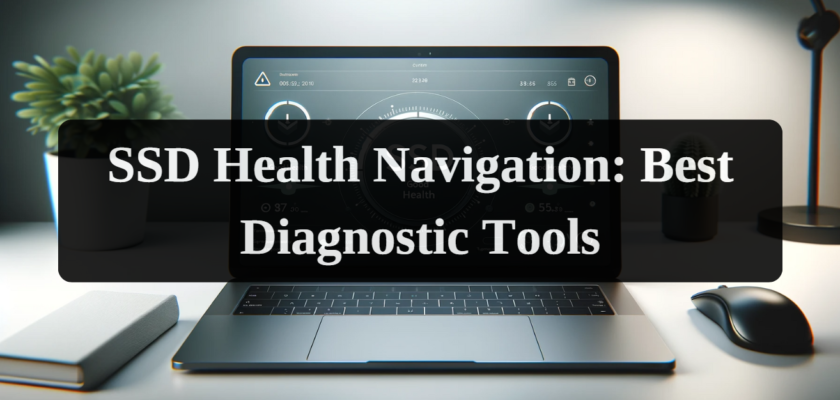Attentiveness to the technology and devices we use is essential. One of the critical components of any computer or laptop is the Solid-State Drive (SSD). These devices provide rapid data access but are susceptible to various failures and wear. Timely diagnostics of SSDs using specialized software is essential to detect potential issues promptly, prevent data loss, and even extend the device’s lifespan.
Causes of SSD Hardware Failures
SSD hardware failures can significantly impact the performance of computers and laptops. These failures are not just inconveniences but can lead to severe data loss scenarios. Common signs of SSD failures include increased boot times, longer file processing times, applications or software freezing or crashing, system failures in opening or loading files, and the presence of corrupted files during or after loading processes. Regular maintenance and monitoring of SSDs using diagnostic tools are crucial in identifying and addressing these issues before they escalate into major problems, ensuring the longevity and reliability of your data storage.
Overview of SSD Diagnostic Programs
The market offers a variety of software solutions for SSD diagnostics, each with unique features and capabilities. Let’s delve into some notable ones:
- Hard Disk Sentinel: This versatile tool monitor and analyzes key parameters of hard drives and SSDs in real-time. It provides detailed temperature controls, S.M.A.R.T. data analysis, power management options, automatic backup in emergencies, and error correction capabilities.
- Active SMART: Focused on continuous monitoring of temperature and performance, this utility diagnoses disk errors, tracks free space using TreeMap technology, and evaluates the disk’s wear and remaining lifespan. It also provides critical temperature alerts and hibernation triggers to prevent overheating.
- CrystalDiskInfo: A user-friendly, free software offering comprehensive details on SSD speed, temperature, and overall health. It updates temperature data regularly and alerts users to potential issues.
- AS SSD Benchmark: Ideal for testing reading and writing speeds, this free program allows users to compare their results with others online. It’s noted for its user-friendly interface and comprehensive speed testing capabilities.
- Victoria: An all-in-one solution for testing, diagnosing, and repairing HDDs and SSDs. It’s highly regarded for its extensive options, including full device information, sector scanning, and error correction.
- Western Digital Dashboard: Designed for Western Digital SSDs, this program provides full device control, temperature monitoring, performance testing, firmware updates, and more.
- HDDScan: A versatile, free tool that supports a wide range of diagnostics for HDDs and SSDs, including surface tests and S.M.A.R.T. attribute monitoring.
- SSD Life: Tailored for all SSD brands, this software focuses on wear control, usage statistics, health assessment, and lifespan prediction.
- Disk Checkup: This free software specializes in HDD testing, offering detailed device characteristics, SMART attribute viewing, and temperature tracking.
- Abelssoft CheckDrive: Offers comprehensive HDD/SSD information, detects problematic sectors, and monitors drive status in real-time.
Each of these programs has unique strengths, making them suitable for various needs, from basic health checks to advanced diagnostics and repair.
Conclusion
The importance of regular SSD diagnostics cannot be overstated in the realm of data security and device longevity. The right diagnostic tool not only helps in preempting potential failures but also in maintaining the optimal performance of your SSD. This article has provided an overview of various software options, each with its strengths, to help you make an informed decision for your specific needs. Regular monitoring and maintenance with these tools can significantly extend the life of your SSD and safeguard your data.

